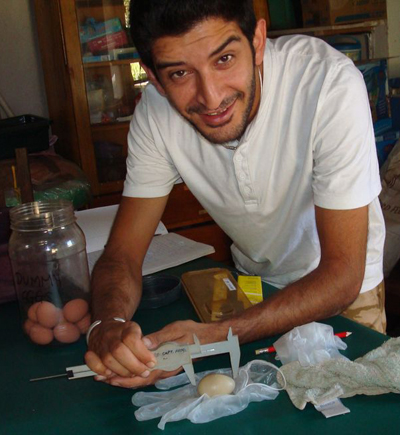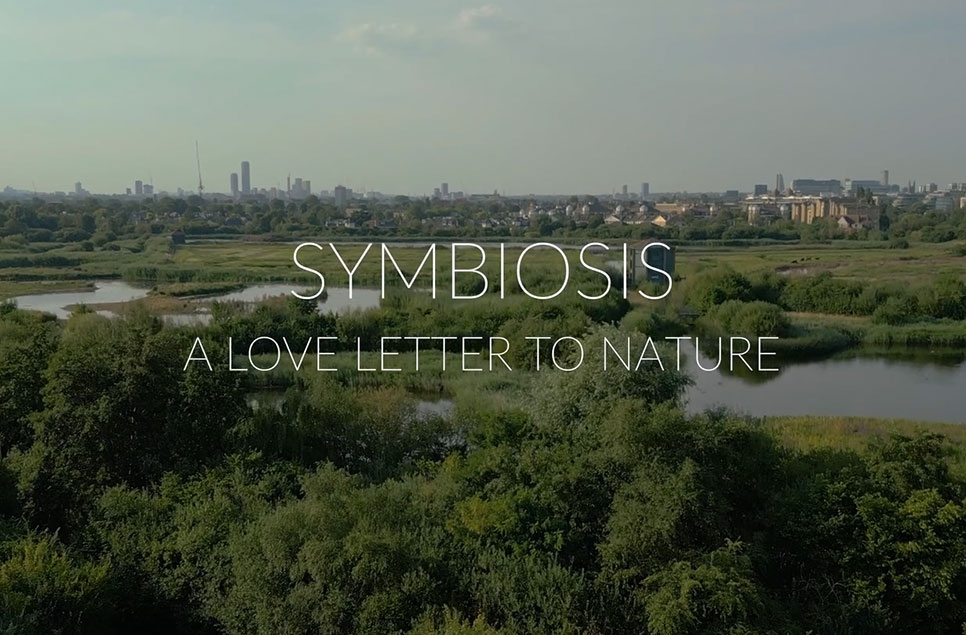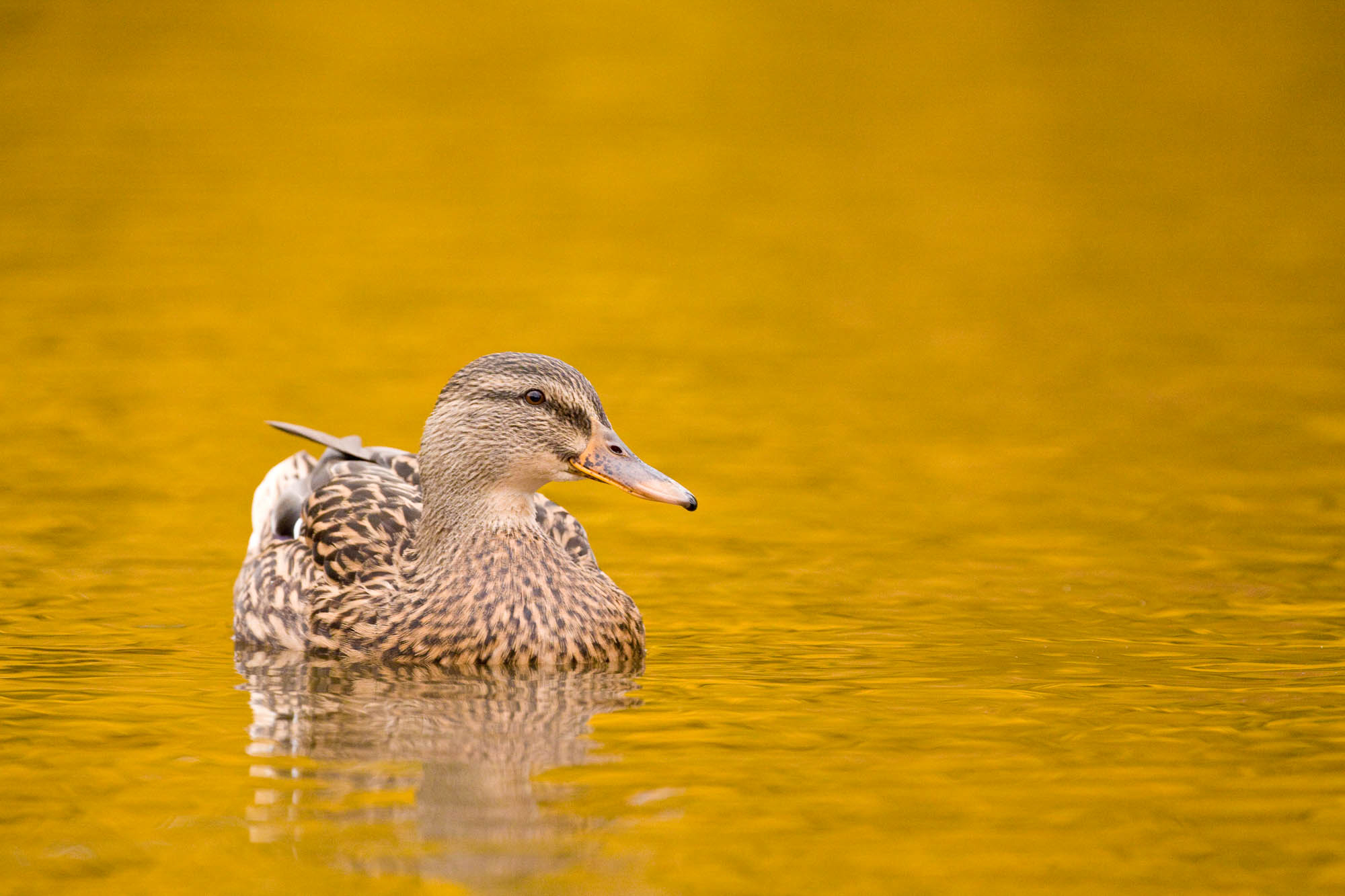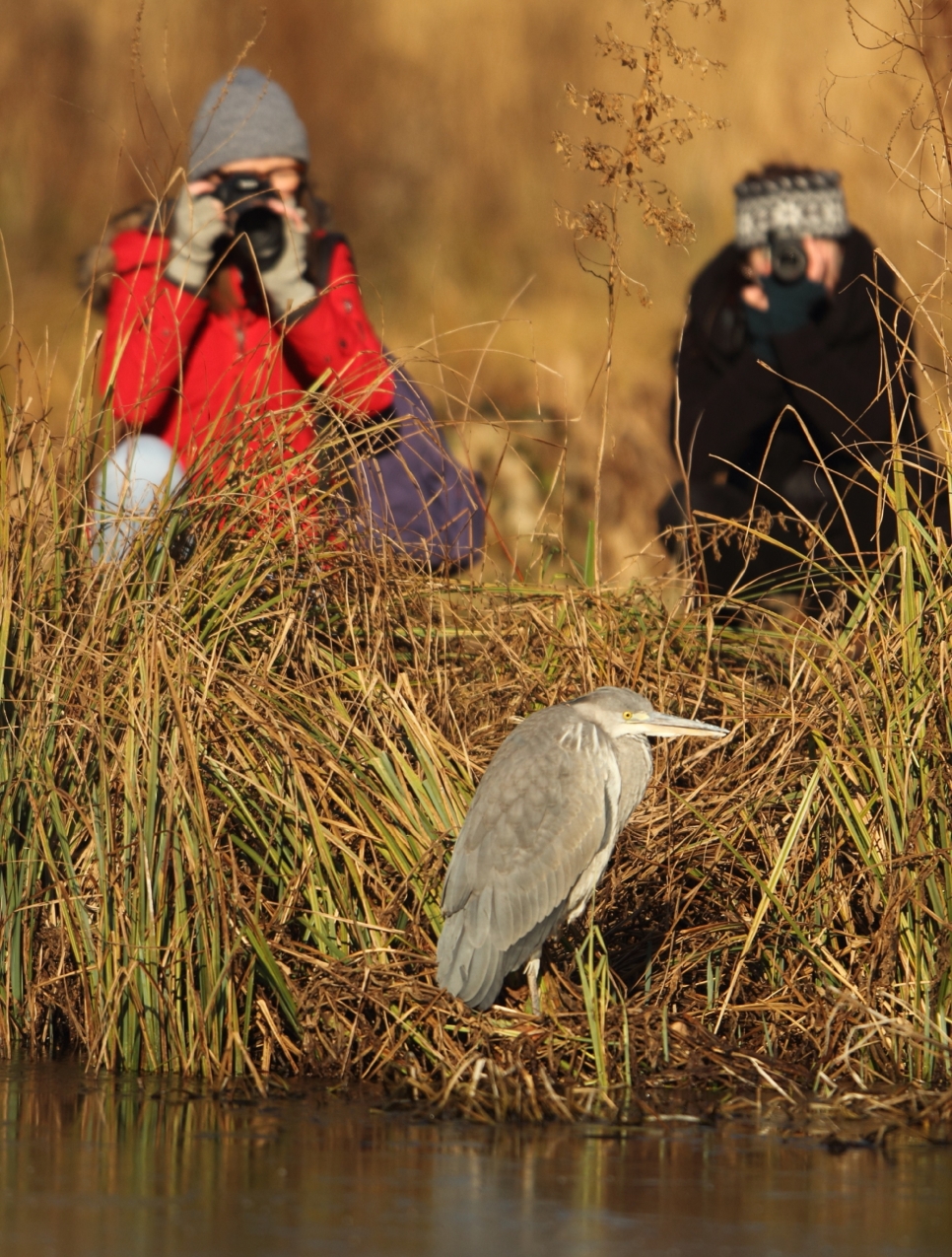A very special Easter Egg: London conservationist celebrates hatching of world’s rarest bird

A London conservationist is today celebrating news from Madagascar where the Madagascar pochard - arguably the world’s rarest bird - has bred successfully in captivity building hope that it can be saved from extinction. Idris Bhatti, a warden at WWT London Wetland Centre, spent three months last year working on a project to save the bird and witnessed the hatching of the first pochard duckling.
Eighteen precious ducklings are now being reared at a specially built centre in Antsohihy, Madagascar, opened last year by Dr Lee Durrell. The birth of the ducklings is a key milestone in the conservation of the species, including an emergency expedition two years ago to take eggs into captivity. It is the ducks from those eggs that have now bred for the first time. The pochard breeding programme is part of a joint project to save the bird by Durrell Wildlife Conservation Trust and Wildfowl & Wetlands Trust (WWT), the Peregrine Fund, Asity Madagascar and the Government of Madagascar.
Describing the hatching of the first duckling, Idris Bhatti said “All the effort and hard work checking on the eggs and incubator at least three times in the night and umpteen times in the day had paid off. I felt as if I had laid the eggs and incubated them myself. My WWT shirt reminded me to be professional and not to weep in sheer joy. I had incubated and watched eggs hatch hundreds of times before, but on this occasion I couldn’t help shed a tear.”
The duckling was named “Voalohany” – “The first one” in Malagasy.
Dr Glyn Young, a conservation biologist with Durrell, has spent much of his life studying the Madagascar pochard. He said: “The ducklings represent an incredible step forward in the fight to save the pochard from extinction. Seven years ago, people thought this bird was already extinct and yet the discovery of one small population and now the arrival of these ducklings has led to real hope that the birds can one day flourish again.”
The pochard was believed to be extinct until its rediscovery in 2006 on a single small lake, Lake Matsaborimena (or Red Lake), in northern Madagascar. Numbering just 22 birds, the ducks remain extremely vulnerable to extinction from a single event such as pollution or a disease outbreak.
In order to restore the species to suitable wetlands within its former range across the high plateau region of Madagascar, scientists are studying the remaining wild population to understand the reasons behind the species’ decline and to determine the right conditions for releasing birds. Particularly worrying is that the wild birds appear to have very low breeding success.
Peter Cranswick, Head of Species Recovery at WWT said: “Although Lake Matsaborimena is the last hiding place for the ducks, it is far from ideal as a habitat. Our initial investigations suggest there is too little food and this may be leading to the low survival of the ducklings; in effect, they are starving to death.
“We have identified some lakes where the physical conditions are potentially right for the pochard, but success will depend on support of the local community. Fishing is thought to be one factor that led to the pochard’s decline but many rural Malagasy people earn their livelihood from fishing. The challenge is to find a solution that helps both the people and the birds.”
In addition to the breeding centre where the ducklings are being reared, a major facility will be developed this year where young birds will be trained prior to release into the wild. Malagasy conservationists are learning the skills needed to breed and rear pochards.



